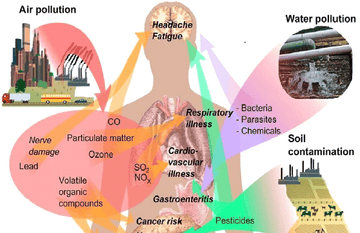Residue accumulation in human body refers to the presence of harmful substances, such as pesticides, heavy metals, and dioxins, that can remain in the body’s tissues and organs for a long time. These substances can enter the body through food, water, air, or skin contact. They can have various health effects, depending on the type, amount, and duration of exposure. Some of the possible health effects are:
- Pesticides: Pesticides are chemicals used to protect crops from pests, but they can also contaminate food and the environment. Exposure to high levels of pesticides can cause acute poisoning, skin lesions, liver damage, and nervous system disorders. Long-term exposure can impair the immune system, the endocrine system, and reproductive functions. It can also increase the risk of cancer and birth defects1.
- Heavy metals: Heavy metals are natural elements that can be toxic to humans in high concentrations. They can accumulate in the body’s bones, muscles, kidneys, liver, and brain. Some common sources of heavy metal exposure are seafood, rice, vegetables, and industrial pollution. Exposure to heavy metals can cause nausea, vomiting, diarrhea, anemia, nerve damage, kidney damage, and brain damage. It can also affect the blood, the cardiovascular system, and the development of children234.
- Dioxins: Dioxins are a group of highly toxic chemicals that are formed as by-products of industrial processes, such as waste incineration, paper production, and chemical manufacturing. They can persist in the environment for a long time and accumulate in the food chain, especially in animal fat. Exposure to dioxins can cause skin problems, liver problems, hormonal disruption, and immune system impairment. It can also increase the risk of cancer and affect the development of the fetus5.
To prevent or reduce the residue accumulation in human body, it is important to follow some precautionary measures, such as:
- Eating a balanced and varied diet, with plenty of fruits and vegetables, and limiting the intake of animal fat, seafood, and rice that may be contaminated with pesticides, heavy metals, or dioxins.
- Washing and peeling fruits and vegetables before eating or cooking, and removing the skin and fat from meat and fish, to reduce the exposure to pesticides and other residues.
- Choosing organic or certified products that are grown or produced without the use of harmful chemicals, or checking the labels for the origin and quality of the products.
- Avoiding or minimizing the contact with sources of pollution, such as industrial waste, smoke, or dust, that may contain residues of pesticides, heavy metals, or dioxins.
- Drinking clean and safe water, and using filters or purifiers if necessary, to remove any impurities or contaminants from the water.
- Seeking medical advice and treatment if experiencing any symptoms or signs of residue accumulation, such as skin rashes, nausea, fatigue, or neurological problems.





